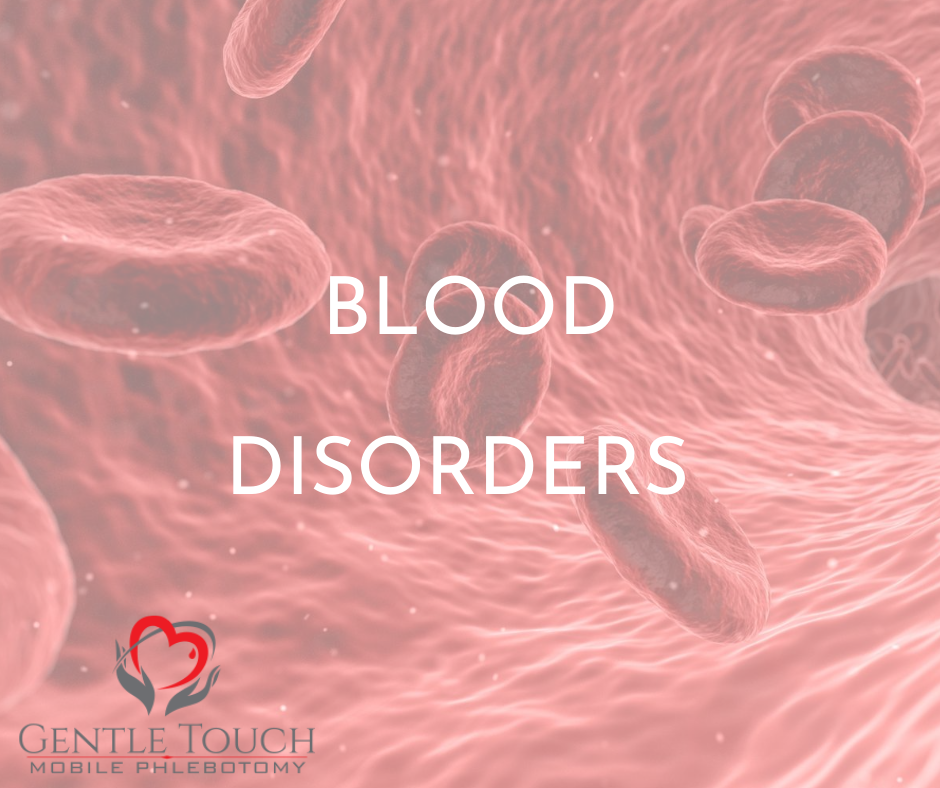Disorders of the blood are conditions that impact the blood’s ability to function properly. Common symptoms of having a blood disorder are unexplained fatigue and weight loss. However, there is a range of different symptoms, all depending on the type of blood disorder one may have.
In most cases, blood disorders decrease the number of blood components, such as: cells, proteins, platelets, or nutrients in the blood, thus interfering with their function. Also, a majority of blood disorders are passed down in families due to genetic mutations. Aside from genetics, blood disorders can develop from medical conditions, medications, and lifestyle factors.
Blood disorders that cause a decrease in blood components or affect their function are broken down into two categories:
- Anemia: red blood cells affected
- Leukopenia: white blood cells affected
Categories of blood disorders that increase blood components are:
- Erythrocytosis: red blood cells affected
- Leukocytosis: white blood cells affected
- thrombocythemia or thrombocytosis: if the disorder concerns platelets
WHITE BLOOD CELL DISORDERS
White blood cells help the body to fight infection. Beginning in the bone marrow, they go on to develop into different types of cells, each having a different immune purpose.
Major types being:
- Neutrophils: destroy bacteria and viruses
- Lymphocytes: kill viruses and regulate the immune system
- Monocytes or Macrophages: eat dead or deactivated bacteria, viruses, and fungus
- Basophils and Eosinophils: help the body respond to allergic reactions and help destroy parasites
Most white blood cell disorders are either a type of cancer or proliferative disorders. Proliferative disorders involve a rapid increase in the number of white blood cells that are circulating in the blood. This mostly occurs because of an infection; however, occasionally bone marrow cancers may be responsible.
TREATMENT AND DIAGNOSIS:
A doctor usually diagnoses leukemias, lymphomas, and myelomas using:
- blood tests
- urine tests
- a medical exam and a complete medical history
- lumbar puncture (spinal tap), where doctors collect spinal fluid for examination
- bone marrow aspiration and biopsy
- imaging tests, such as X-ray, CT, or PET scans, MRI, and ultrasound
Blood cell cancers that do not yet cause symptoms may not require treatment aside from monitoring. Doctors usually treat people with aggressive or active blood cancers using some mix of:
- chemotherapy
- targeted drug therapy, which are medications that help increase the effectiveness of chemotherapy drugs or destroy elements of the cancer cells that chemotherapy drugs do not
- stem cell transplants, which involve infusions containing bone marrow cells that are capable of forming blood cells to replenish destroyed cells
- radiation therapy
- surgery
RED BLOOD CELL DISORDERS
Affecting more than 3 million Americans, anemias, where there are not enough red blood cells or the cells do not work correctly, are among the most common blood disorders.
The most common types are:
- iron-deficiency anemias: when the body does not have enough iron or cannot properly absorb it
- pregnancy anemia: when there is more of a demand for red blood cells than normal
- vitamin-deficiency anemias: usually caused by low dietary intake of vitamin B-12 and folate
- non-inherited hemolytic anemias: where red blood cells are broken and destroyed in the bloodstream abnormally, either by injury, illness, or medications
- inherited hemolytic anemias: where red blood cells are broken down or destroyed more quickly than the body can replace them
- aplastic anemias: when the bone marrow stop producing enough blood cells
TREATMENT AND DIAGNOSIS:
If the cause of anemia is not apparent, such as injury or infection, or to assess anemia, a doctor will:
- do a physical exam
- review individual and family medical history
- administer blood tests, such as complete blood counts, reticulocyte count, and peripheral blood smear
- do bone marrow aspiration and biopsy
Treatment depends on the cause but commonly includes:
- blood transfusions
- dietary changes
- surgery
- medications that stimulate the production of bone marrow and new red blood cells

